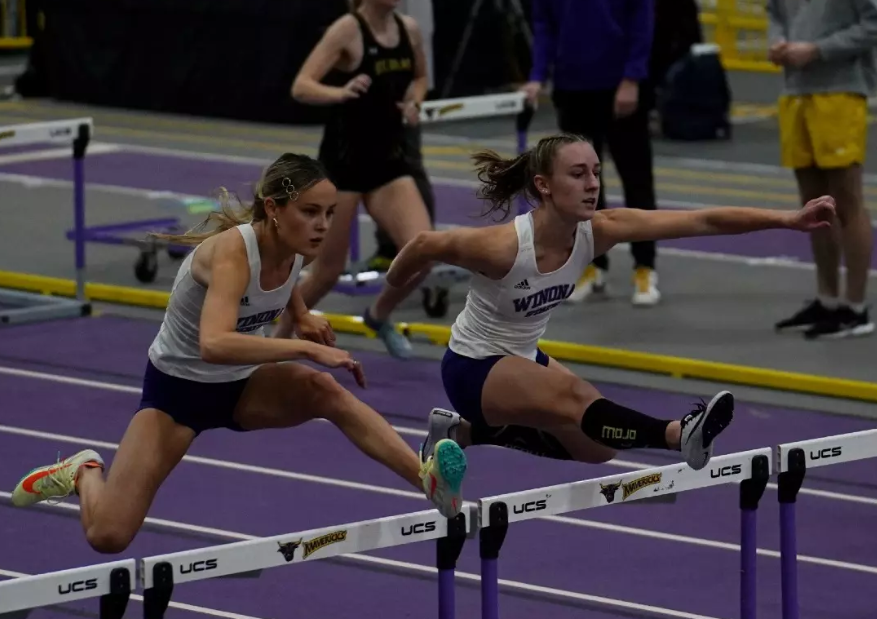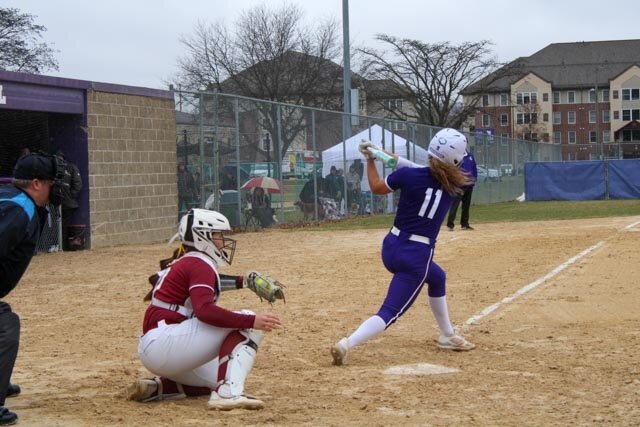In the world of sports, where an athletes’ physical prowess often takes center stage, the weight of expectations can be crushing. As a result, a silent struggle tends to play out not on a court or on a field, but within the confines of the mind.
After the COVID-19 pandemic, students around the world were far more likely to have extremely high levels of mental health concerns. Student-athletes were suffering from higher rates of mental exhaustion, anxiety and feelings of hopelessness and depression.
These elevated levels of concern didn’t seem to drop once the restrictions of the pandemic lifted.
Student-athletes tend to base much of their self-esteem on their playing time, ranking and ultimate success on the field, and without proper acknowledgment of the importance of their mental health, they may go their entire athletic career without knowing that sports are simply what they do, not what they are.
However, there lies a stigma that rests heavily on all athletes’ shoulders, one that comes with the typical perfectionist mindset of many competitors; if you’re truly tough, you can handle the tribulations of life on your own.
But a sprained ankle or a broken wrist are unquestionably unignored when it comes to concern but can be just as debilitating as depression and anxiety, which unfortunately tend to go unacknowledged in favor of grit.
Though, at Winona State University, the mental health services are quite vast and are often promoted as a helpful tool for all students.
“We are constantly reminded of the resources we have
on campus,” Reanne Weil, a fourth-year midfielder for the Winona State Women’s Soccer team said. “I have not taken advantage of it personally, but I know many people who have benefitted from the sources we have.”
Along with individual counseling, the mental health services that are offered on campus range from attending events put on by faculty or learning skills through the resources offered. Therapy dogs also frequent campus and peer counselors are available if a formal session seems intimidating.
The location of said services is right in the Integrated Wellness Center, a convenient spot for athletes to utilize when moving from classes to practice.
Of course, stress can be quite the pressure cooker when it comes to the unique culture
of sports, and the aggressive environment that most student athletes perform in certainly do not make it easy to display weakness or inability.
As a result, many student athletes may avoid seeking mental health help when it is needed.
“For myself, it doesn’t really make a difference how I’m feeling or if I’m dealing with something,” Alessandro Tren- ta, a second-year athlete on the Winona State Men’s Golf Team said. “My sport is something that has always been part of my life so even though there are times I feel stressed out, exhausted or like everything is going wrong, as long as I have the mindset of working through it and giving it all I have, it gives me a feeling of accomplishment.”
While admirable, mindsets like these can be particularly damaging as it creates a consistent ideology that seeking out assistance for mental health is less important than the learned concept of perseverance that comes with playing a sport. Most may not see the error of this mindset until it is already too late.
And while the student-athlete may not display an outward cry for help, there are things that coaches or parents may notice including sleeping problems, irritability, low energy and a change in eating habits. These occurrences are not only consequential to the mind, but the body as well.
This not only affects performance and focus during play (which could have potentially catastrophic results), it also affects their performance in the classroom, opening the door to worsening mental conditions that cannot be swept aside.
Overall, in today’s win-at-all cost world, a competitor stepping aside to gain control over a mental health concern can arouse unwanted labels such as “loser” or “quitter.” These concerns often serve as a large obstacle for student athletes and getting the care they require to perform at their best both on and off the playing ground.
Luckily, Winona State has an excellent set of teams and staff that encourage the prioritization of mental health, as it greatly impacts the game they play.
Finding individual healthy habits for mental wellness is important, but being provided resources for more significant concerns battles against the stigma of obligatory physical and mental steeliness that is thought to be required of sports players and encourages the health and well-being of the people that lie beneath the competitor.


































